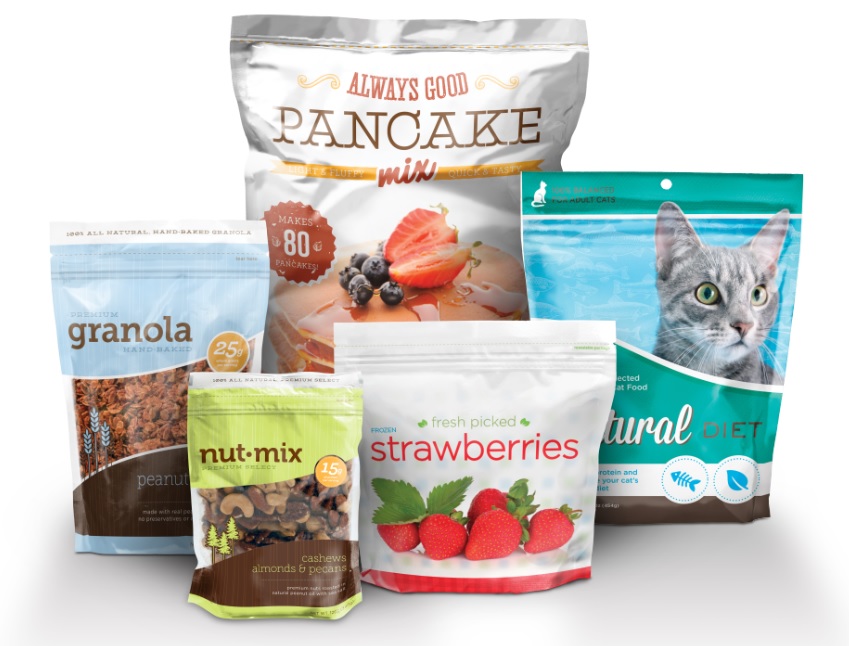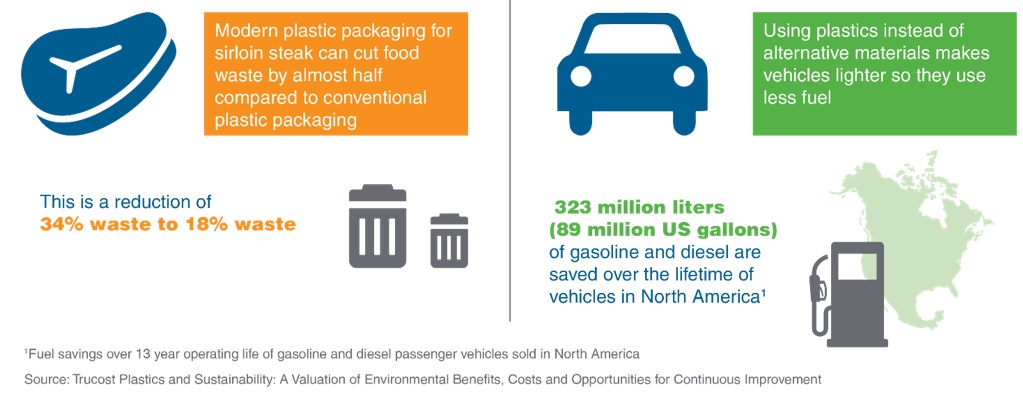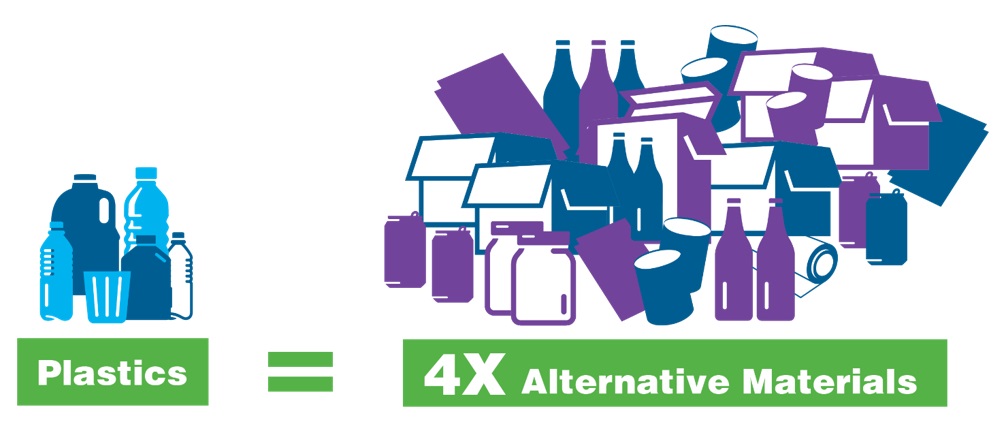Some Food for Thought: Plastic Packaging is one of the Solutions to Reducing Food Waste
By Mike Cappelli, food packaging market manager, NOVA Chemicals Polyethylene Business
The numbers are staggering. Approximately 40 percent of food in America is wasted. Each one of us throws away nearly 300 pounds of food each year. And yet, one in seven Americans do not have a steady supply of food on the table.1
Wasting food is not only a societal issue, but an environmental issue because it wastes natural resources including water, energy and cropland. Food is the number one item in America’s landfills, and it contributes more to climate pollution than all of the cars in Georgia, according to the National Resources Defense Council.
At NOVA Chemicals, we are shaping a world where products vital to our health and happiness are even better tomorrow than they are today. As a leading producer of plastics and chemicals, we believe plastic food packaging can play an important role in reducing food waste.
Plastic is versatile, cost-effective, and durable. It helps extend the shelf life of produce, meat and poultry, cheese and bread. Plastic packaging can protect food in transport and on the retail shelves by providing barriers to oxygen, light, temperature, moisture, microbes and dirt. Plastic packaging can extend shelf life at the retail and consumer levels.
For example, there is 26 percent more waste with loosely packed fruits and vegetables than with produce that is pre-packaged in plastics. If you have ever wondered why anyone would wrap a cucumber, it is because a cucumber’s shelf-life can be extended from three to 14 days just by using 1.5 grams of plastic film.3 Modern plastic packaging for sirloin steak can cut food waste by almost half compared to conventional plastic packaging. A little bit of packaging can reduce waste while also protecting economic and environmental resources.
Environmental Benefits of Plastic
Lightweight, modern plastic material is also more sustainable than other materials. According to a 2016 study by TruCost2, the environmental cost of using plastics in consumer goods and packaging is nearly four times less than if plastics were replaced with alternative materials (such as glass, tin, aluminum or paper). Another way to understand the difference is that it takes four times as much alternative material (by weight) to perform the same functionality as plastic. Strong, lightweight plastics help us do more with less material, which provides environmental benefits throughout the lifecycle.
Flexible plastic packaging uses up to 97% less material than glass and up to 75% less than cardboard, and much plastic packaging material is recyclable, where facilities exist.
Innovation for Better Plastics Tomorrow
Plastics are a foundational material of our global economy. They come in the form of products that make everyday life healthier, easier and safer. Their benefits to society are undeniable.
However, we also appreciate there are environmental considerations with plastics. We support innovation as part of continuous improvement, and the responsible post-use of plastics.
Last summer, NOVA Chemicals introduced a recipe for an all-polyethylene pouch packaging which provides a viable alternative to traditional rigid containers. The stand-up pouch is a very popular and fast growing package type. It is used for a wide variety of applications including dry foods, frozen foods, liquids, confectionery, pet foods and non-food items. However, most existing stand-up pouch packaging is made from mixed materials and therefore cannot be easily recycled.
The new NOVA Chemicals pouch structure is made of all polyethylene and is compatible with #2 HDPE recycling streams, while retaining the performance and cost-competitiveness of existing mixed-material structures. First conceived as a more sustainable replacement to glass and other rigid containers, we believe the recyclable pouch is the next frontier in sustainability for this popular packaging. We’re thrilled to introduce this solution to our film customers and give them new sustainable options to share with their pouch customers.
 Food waste is an enormous issue but one that many experts believe is solvable. From reducing food loss in the supply chain to reducing food waste at the retail and consumer level, there are ways to make improvements at every stage of distribution and consumption. Plastic food packaging can be part of the solution for our society and the environment.
Food waste is an enormous issue but one that many experts believe is solvable. From reducing food loss in the supply chain to reducing food waste at the retail and consumer level, there are ways to make improvements at every stage of distribution and consumption. Plastic food packaging can be part of the solution for our society and the environment.
Learn more:
- National Resources Defense Council, www.savethefood.com 2016.
- Plastics and Sustainability: A Valuation of Environmental Benefits, Costs, and Opportunities for Continuous Improvement
- Why would anyone shrink wrap a cucumber? Ameripen.org.
How to Recycle More Plastic:
- Think beyond the kitchen to include plastics in the bathroom, laundry area and garage.
- Include the caps and lids. Simply squish the bottles and twist on the caps before tossing them into the curbside bin.
- Return your bags and wraps. Collect your plastic grocery bags as well as bags for dry cleaning, bread, produce, newspapers and sealable food storage bags. Return them all to your local grocery and retail stores.
- Recycle foam packaging at local collection sites, including NOVA Chemicals’ locations in Beaver Valley, PA.
This article was developed by a member of PRC and the views expressed are not necessarily those of PRC, our members or other partners.




